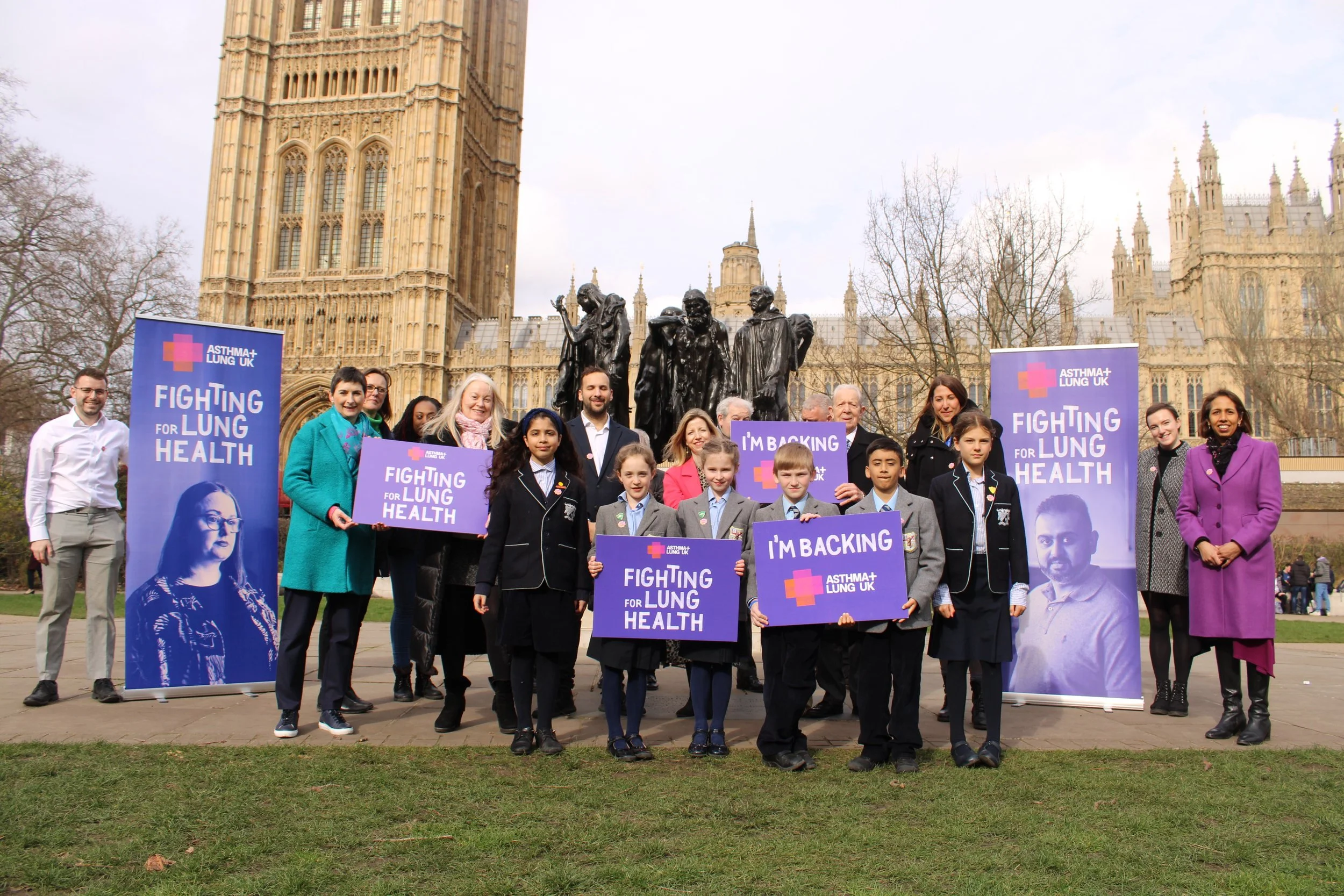Five tips to look after your mental health
It’s just as important to look after your mental health as your physical health, and we know living with a lung condition can bring extra challenges. This World Mental Health Day, we’ve pulled together some tips to help you to look after your mental health right now.
Living with a long-term lung condition can affect many aspects of your life. You’ll have physical symptoms, like getting out of breath and feeling tired. Lung conditions can also affect your mood, how you feel, and your ability to cope with daily life. We also know that the rising cost of living is a real concern for people at the moment. With energy and other bills rising, many people with lung conditions have told us that they are struggling to make ends meet, which we know is taking a toll on their mental as well as physical health. You are not alone. It’s important to know that we can support you, and there are things you can do to help yourself feel better too.
Address what’s worrying you
We know that lots of different things might be worrying if you have a lung condition, and it’s important to acknowledge these worries so you can get support. We know that energy price hikes and food costs might be particularly front of mind at the moment. If you live with a lung condition, you’ll know how important it is to stay warm and eat well this winter. Help with your heating costs may be available. We also have information on our website about help with food costs too.
If your lung condition or symptoms are worrying you and you need to talk to somebody, you can give our Helpline team a call on 0300 222 5800 (Monday-Friday, 9am-5pm). If you have asthma, we also have a WhatsApp service. Send the Asthma + Lung UK Helpline a WhatsApp message on 07378 606 728 and we’ll respond within 24 hours on a working day. Find out more here.
It’s good to talk
Did you know that Asthma + Lung UK has more than 150 support groups meeting regularly throughout the UK, and we run online sessions too? Our support groups give you the opportunity to make new friends and share your experiences and stories with others living with a lung condition. We also have Singing for Lung Health Groups which are a great way to give your lungs a workout and meet likeminded people.
Find out more about our support groups here or contact us on supportgroups@asthmaandlung.org.uk or call 0300 222 5800 for more information.
Take a breath
Breathlessness can be challenging but many people find ways to cope with it and still enjoy life. Your GP can prescribe treatments including inhalers, or refer you to services to improve your breathlessness, such as pulmonary rehabilitation. Breathlessness is also affected by the way you breathe, your lifestyle, and how you think and feel about your breathing. There are breathing techniques you can use to breathe more efficiently and to feel in control of your breathing. You read more about different breathing techniques here.
Look after your body as well as your mind
Managing your lung condition well is important for your mental wellbeing. We’re often told that being active is good for us. But if you have a lung condition, you might wonder if it’s right for you. In fact, being active can actually help to improve both your breathing and your mental wellbeing. You might be nervous about becoming active, especially if you haven’t been active for a while. But even a little physical activity is better than none at all. Find out how you can get started here.
If you’re living with a lung condition, eating well is especially important. A balanced diet with lots of variety can help prevent infections and keep your lungs and the rest of your body healthy so you can lead an active life. If you’re struggling to afford food, you don’t have to go hungry. From food banks to food waste apps, there are options available to you.
If you have an inhaler, using it as prescribed will help you to manage your symptoms. Good inhaler technique also makes a big difference to how much medicine gets into your airways. It’s easy to check you’re taking your inhaler correctly by watching our short videos.
Speak to experts
If you think you are experiencing symptoms of depression, anxiety or another mental health condition, speak to your GP or another health care professional. Support and treatment is available, and the sooner you seek help the sooner you’ll feel better. You can also refer yourself for free NHS talking therapies through the Improving Access to Psychological Therapy (IAPT) service without needing to see your GP. NHS Every Mind Matters also has lots of advice on looking after your mental health. There are organisations that you can speak to if you’re struggling to manage your mental health. You find out more about them here.
As always, we’re here to support you. Our brilliant helpline team are made of up of specialist nurses and expert Healthcare Advisors, who can help you live well with your lung condition. As well as advice on your symptoms and tips on managing your lung condition, we can advise you on welfare benefits, and help you to access support with heating costs and food. If you need support, give our Helpline team a call on 0300 222 5800 (Monday-Friday, 9am-5pm). If you have asthma, we also have a WhatsApp service. Send us a WhatsApp message on 07378 606 728 and we’ll respond within 24 hours on a working day. Find out more here.
We empower people with lung conditions to make changes that can be transformative.
Please donate now to help make sure people with lung conditions can live well this year.








Chloe was diagnosed with asthma as a child. As she got older, her symptoms had completely disappeared. But when she started university, this changed. Here she tells us how getting active has helped her manage her asthma - and changed her life.